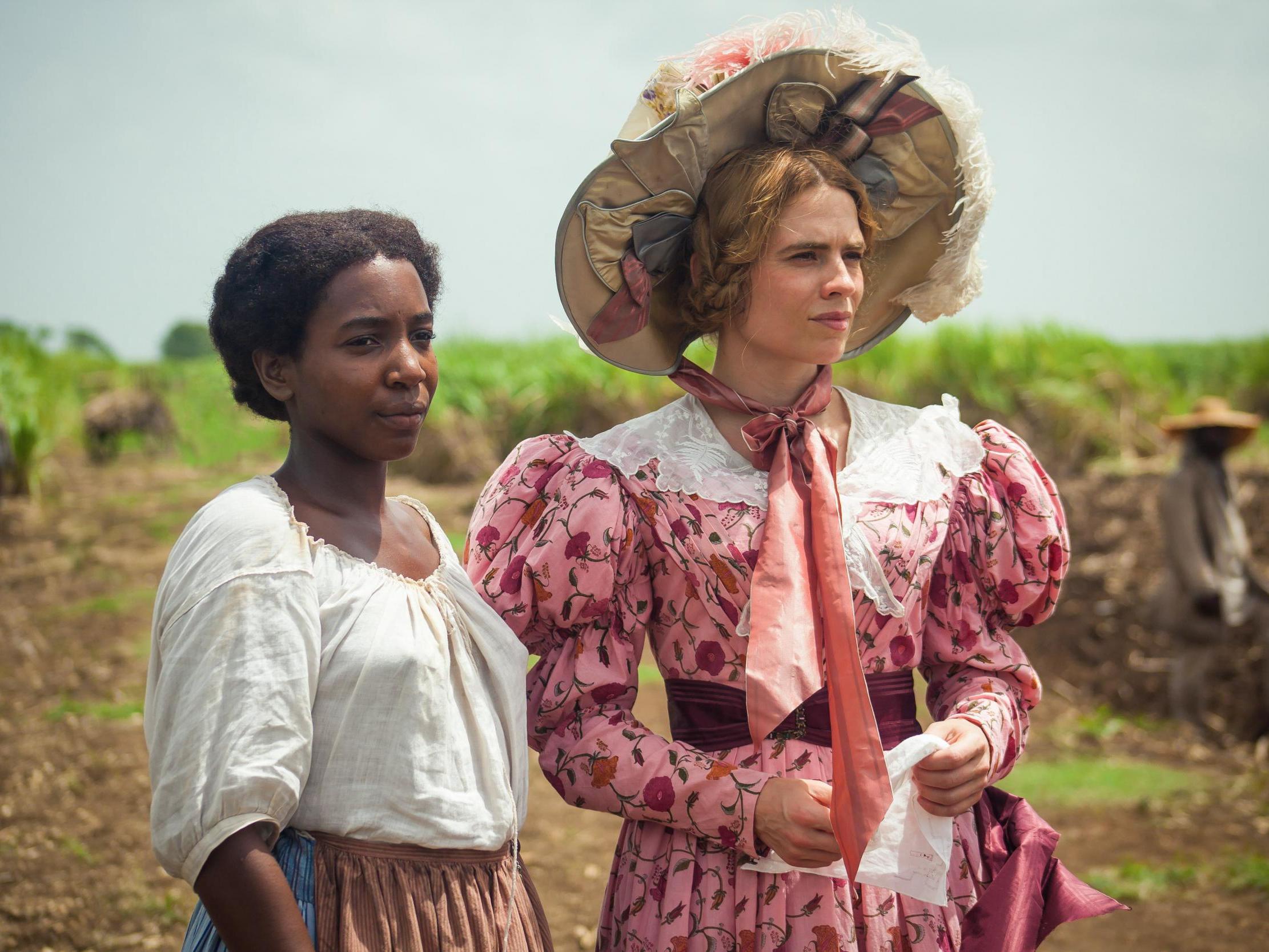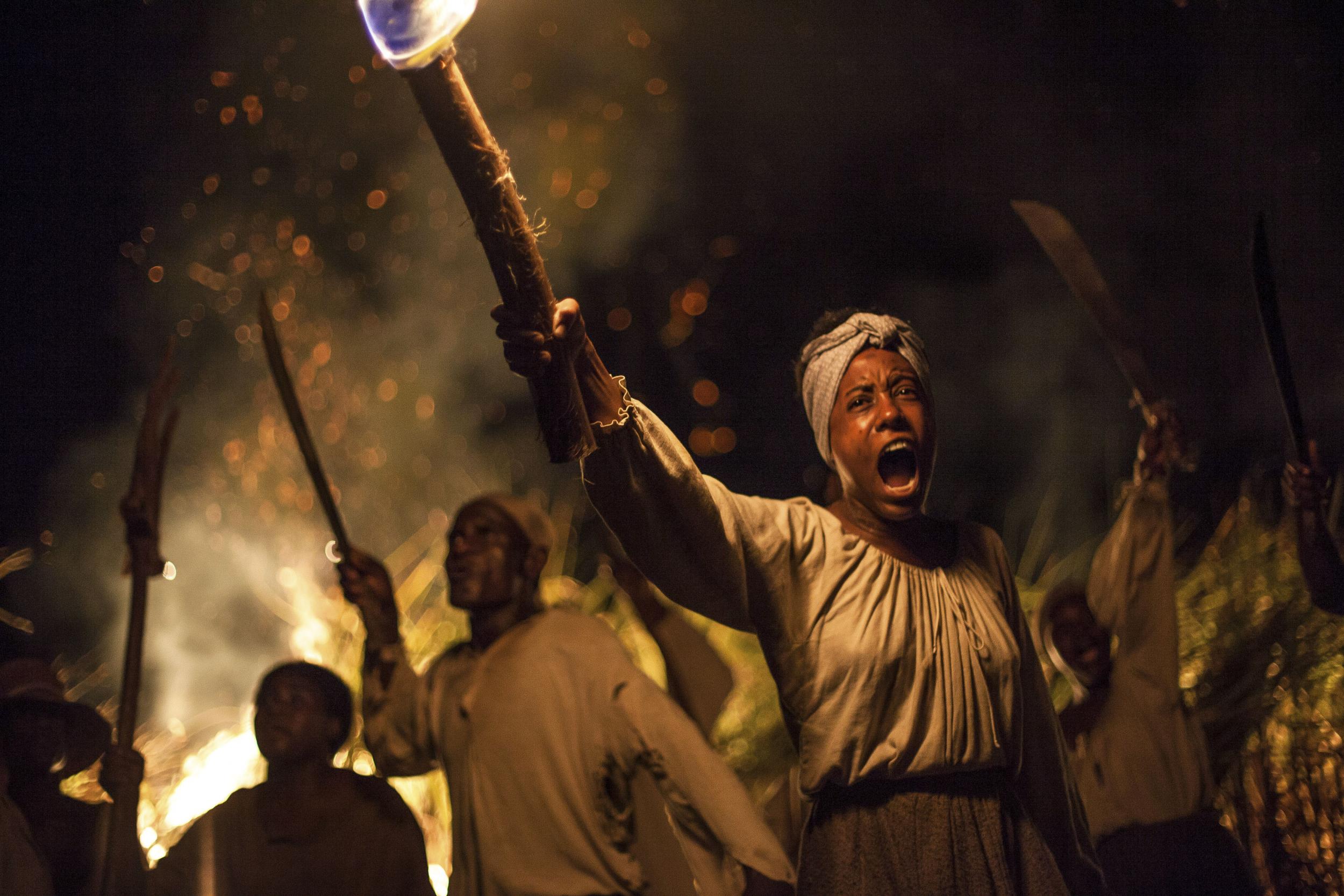The Long Song review: A moving reminder of the cruelty of slavery
The BBC dramatisation of Andrea Levy’s award-winning novel makes for powerful, shocking viewing

Your support helps us to tell the story
From reproductive rights to climate change to Big Tech, The Independent is on the ground when the story is developing. Whether it's investigating the financials of Elon Musk's pro-Trump PAC or producing our latest documentary, 'The A Word', which shines a light on the American women fighting for reproductive rights, we know how important it is to parse out the facts from the messaging.
At such a critical moment in US history, we need reporters on the ground. Your donation allows us to keep sending journalists to speak to both sides of the story.
The Independent is trusted by Americans across the entire political spectrum. And unlike many other quality news outlets, we choose not to lock Americans out of our reporting and analysis with paywalls. We believe quality journalism should be available to everyone, paid for by those who can afford it.
Your support makes all the difference.I hope it’s not too flippant to describe The Long Song (BBC1) as being like Downton Abbey, but with added sadism and crimes against humanity. To my mind, that makes it rather better than the frankly vacuous and anodyne Downton. In all seriousness, though, The Long Song is incredibly moving. How else can one react to the forcible removal of a child from their mother, on the whim of a selfish woman looking for a slave maidservant she can mould in her own (morally) unattractive image?
Such was the initial fate of July (Tamara Lawrance), the central figure in this dramatisation of Andrea Levy’s award-winning novel, set in early 19th-century Jamaica. Toiling around the sugar cane fields with her mother Kitty (Sharon Duncan-Brewster), July catches the eye of Caroline Mortimer (Hayley Atwell), the sister of the plantation owner. Against the mother’s plaintive protest, the infant is basically kidnapped, and taken off to answer every demand of her spoilt, violent, spiteful mistress.
This defining scene of legal abduction is powerfully underplayed, and the sense of routine cruelty is all the better evoked for it. There is not much of a struggle in the open theft of her only child, because Kitty knows that if she did try to fight the plantation owner, she’d probably be flogged to death. Her child is too bewildered to understand what is happening, and the owner and his sister graphically demonstrate the assumptions of the time – that slaves were mere chattels, not human beings, and could be used and disposed of by the slave owners, their families and their lackeys as they saw fit. Leo Bill plays the superbly chinless, amoral plantation boss, his arrogance continually undermined by glimpses of his imminent commercial failure.
Atwell, though, surpasses him with her bourgeois pretensions and bloated sense of entitlement, but the dynamic between her and her maidservant, now renamed Marguerite (“like the flower”) by missy Caroline, evolves over time. As she matures, July/Marguerite evolves into a figure Caroline grows more dependent upon. She still beats her, though, when she catches her thieving and lying.
By her twenties, we observe July as a woman who is more than a match, intellectually and morally, for her supposed superior. It is gracefully done, with the actions of each young woman speaking for themselves, no heavy editorialising required. July starts to softly mock her mistress, who so richly deserves it, given that her catchphrase is, “I could have you whipped”.

At one stage, desperate for company – she has one failed marriage behind her – and to try to emulate the manners and fashions in London, Caroline organises a lavish, over-expensive Christmas dinner party. At the end of what turns out to be a rather disastrous evening, she realises that the finest Irish linen tablecloth that was supposed to have been laid is in fact a coarse, soiled bedsheet. Her despair is absurd and comical; July raises a crafty smile, and we join in.
So, like Downton, there is a rich-poor, upstairs-downstairs dimension to this story, although with a little more at stake. The persistent tendency of all humans towards snobbery is brought vividly alive when July meets visiting slaves, and they attempt to outdo each other in the paleness of their skin and the social standing of their “owners”. It puts July into a slightly compromised light for a heroic figure, but the drama is more interesting and believable for it.
Lenny Henry is there too, joining the other domestic slaves in a beautifully lilting patois. He runs the servants as a sort of super-butler, just like Carson in Downton. Except that when the rebellion comes, Godfrey turns out to be just as resentful as any of the revolutionaries burning the fields. When the opportunity arises, he answers back, and demands Caroline speak the real name of “Marguerite” – restoring a little of July’s dignity, and his own. It’s Henry’s best role in years.
Every so often, when the question of apologies for slavery comes up, it is sometimes argued that we cannot make moral judgments on the past. The Long Song upholds that such moral outrage is not only possible, but imperative. Apologies are in order.
Join our commenting forum
Join thought-provoking conversations, follow other Independent readers and see their replies
Comments